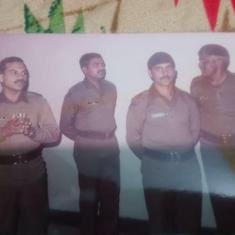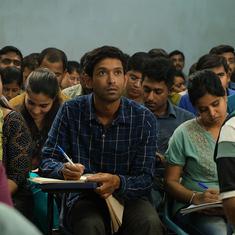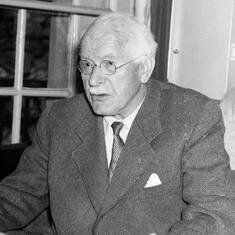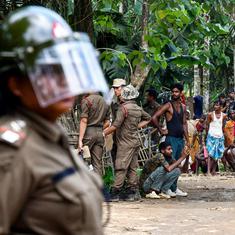Sunny Deol is back, and this time he is throwing punches from the director’s chair.
In Ghayal Once Again, Deol stars in and directs the sequel to Raj Kumar Santoshi’s vigilante drama from 1990, which featured the bulky actor as a boxer who kills a slimy businessman in full view. Ghayal’s Balwant Rai is a kind of all-encompassing embodiment of corruption and evil, and the sequel finds an appropriate replacement for him in Raj Bansal (Narendra Jha). A nasty business magnate who lives in an ugly Lego-block mansion in Mumbai and runs the city from on high, Bansal’s resemblance to a certain industrialist who has interests in just about every sector of the economy is the most daring aspect of this movie.
Deol’s Ajay Mehra, who has served out his jail term for killing Rai, is now in the more benign business of conducting sting operations through his news portal, Satyakam. Ajay leaps to the aid to a group of sincere college students who record the murder of a Right to Information activist (Om Puri) by Bansal’s spoilt son Kabir (Abhilash Kumar). The game of wits between Ajay and Bansal is a familiar one, but is enhanced by superbly staged action sequences in actual locations in Mumbai. Deol and action director Dan Bradely shut down busy thoroughfares and malls in the city, and despite some help from computer-generated imagery, the stunts look and feel real.
Less convincing is Ajay’s war against Bansal. The battle of the lone man against the system is not as effective or coherent as it was in Ghayal. The sequel’s inability to provide an extra-judicial solution to the social evil that Bansal represents could have something to do with the precarious journey of the vigilante movie genre into our consumerist times. Where pure evil was previously concentrated in Balwant Rai, the real villains in Ghayal Once Again are selfish parents who protect their wayward wards despite their crimes. The sequel correctly pinpoints the problem, but is too timid to offer the unofficial solutions that will satisfy genre fans.
The vigilante justice action drama was a popular genre in the 1980s and the early ‘90s, giving fans the pleasure of seeing crooked industrialists and politicians being maimed or killed without due process on the screen. Nothing changed in real life, of course, but at least within the confines of the cinema, the movies offered the fleeting feeling that justice had been done.
Ghayal was one of the best-known entries in this genre, and the sequel labours under the shadow of the 1990 production. Flashbacks to scenes from the original do not help, nor do Ajay’s repeated nightmares about his past.
Deol is incapable of suggesting a character with an inner life, and he hasn’t aged well enough to portray an action hero who sends his opponents to meet their bonesetters. The actor-director moves slowly, and the legendary hand that weighs 2.5 kilos lands its punches weakly.
Chandan Arora’s surgical editing suggests immense momentum and tension, and the narrative moves at a fast clip before it settles into keeping pace with its lumbering leading man. Deol directs his actors competently, but he stretches out the climax and loses sight of his character’s crusade. Ghayal Once Again starts out as a takedown of Bansal and ends in a pile of mush. Even for vigilantes, it is all about loving your parents.
In the strange way in which the movie trade works these days, Anil Ambani’s Reliance Entertainment has distributed Ghayal Once Again, while Mukesh Ambani’s electronic goods store has lent one of its stores for a crucial action sequence. Who killed the vigilante movie, then? Product placement and the corporatisation of filmmaking.










